-
Previous
RPD Challenge 2020, a QZSS hackathon organized by the Cabinet Office, MGA, and GISTDA

-
Next
4th EU-Japan Public and Private GNSS Roundtable Meeting by the Cabinet Office and the European Commission
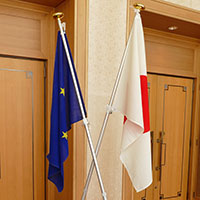
[Report] Deliberations on QZSS at the 7th Session of the IMO's NCSR
The 7th session of the International Maritime Organization's (IMO) Sub-Committee on Navigation, Communications and Search and Rescue (NCSR) was held from January 15 to 24, 2020 in London, the United Kingdom.
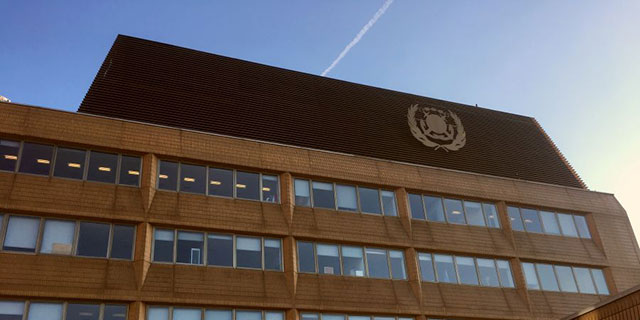
Exterior of the London headquarters of the IMO, a specialized agency of the United Nations
At the 99th session of the IMO's Maritime Safety Committee (MSC) in 2018, Japan proposed that the Quasi-Zenith Satellite System (QZSS) be recognized as a component of the world-wide radio navigation system (WWRNS) with the aim of international shipborne usage. Japan also proposed establishing performance standards for shipborne QZSS receiver equipment. A decision was made to deliberate these proposals at the NCSR sub-committee over the two-year period from 2020 to 2021. Japan's QZSS-related proposals were topics of discussion at the 7th session, and the first round of deliberations was held.
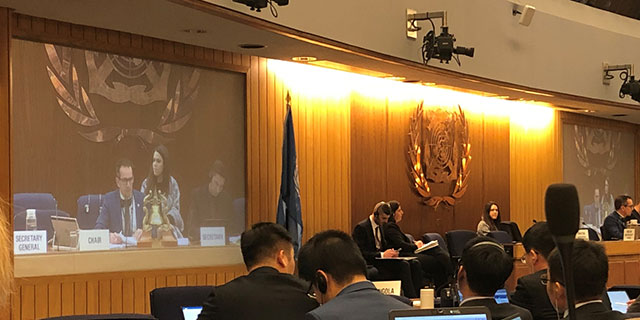
Deliberations in the main hall
Recognizing QZSS in the WWRNS and Determining QZSS Receiver Equipment Performance Standards
Japan gave explanations of two documents: explanatory materials on QZSS for WWRNS approval, and a draft of shipborne QZSS receiver equipment performance standards.
Many Asian countries in particular were in favor of recognizing QZSS in the WWRNS. At the next NCSR 8th session (around January 2021), Japan will provide further information and detailed data, and will continue working with the aim of adoption at the MSC 104th session (around June 2021).
Deliberations on the shipborne QZSS receiver equipment performance standards draft were passed to an expert working group. After minor corrections were made to create a final version, it was approved at the NCSR sub-committee. This draft will be adopted at the MSC 102nd session (around May 2020).
In addition to QZSS, other global navigation satellite systems (GNSS) and regional navigation satellite systems (RNSS) have already received WWRNS recognition - namely GPS, GLONASS, Galileo, and BeiDou - and performance standards have been established for shipborne receiver equipment supporting these systems. The second round of deliberations on the Indian IRNSS (NAVIC) was completed at the 7th session, and it is expected to be adopted at the MSC 102nd session.
Reference
-
 Dec.15,2021
Dec.15,20215th EU-Japan Public and Private GNSS Roundtable 2021
-
 Sep.17,2021
Sep.17,2021RPD Challenge 2020, a QZSS hackathon organized by the Cabinet Office, MGA, and GISTDA
-
 Apr.15,2019
Apr.15,20194th EU-Japan Public and Private GNSS Roundtable Meeting by the Cabinet Office and the European Commission
-
 May.04,2017
May.04,2017EU-Japan GNSS Mission (Day 2)
-
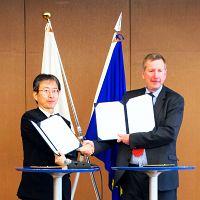 May.03,2017
May.03,2017Signing of a Cooperation Arrangement on Satellite Positioning Application
-
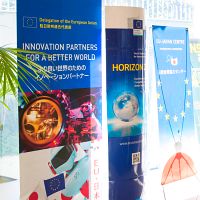 May.02,2017
May.02,2017EU-Japan GNSS Mission (Day 1)
-

Information about events related to QZSS
-
 Sep.12,2017
Sep.12,2017Mitsubishi Heavy Industries Exhibited the first and second stages of QZS-4 Launch Vehicle
-
 Aug.18,2017
Aug.18,2017Exhibition of the QZS-4
-
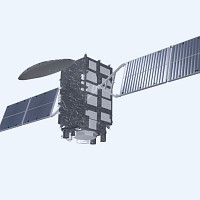 Aug.17,2017
Aug.17,2017Live Broadcast of the QZS-3 Launch
-
 Jul.07,2017
Jul.07,2017Mitsubishi Heavy Industries Exhibits the QZS-3 Launch Vehicle
-
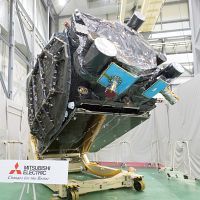 Jun.16,2017
Jun.16,2017Exhibition of the QZS-3
-
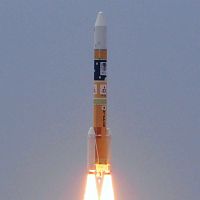 Jun.01,2017
Jun.01,2017Successful Launch of QZS-2
-
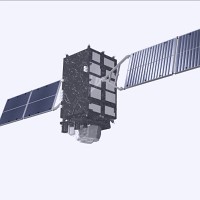 May.30,2017
May.30,2017Live Broadcast of the QZS-2 Launch
-
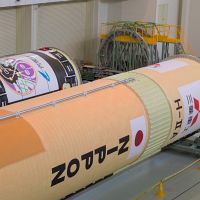 Apr.25,2017
Apr.25,2017Mitsubishi Heavy Industries Exhibits the QZS-2 Launch Vehicle Core Frame
-
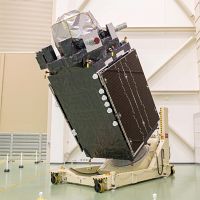 Apr.07,2017
Apr.07,2017Exhibition of the QZS-2


